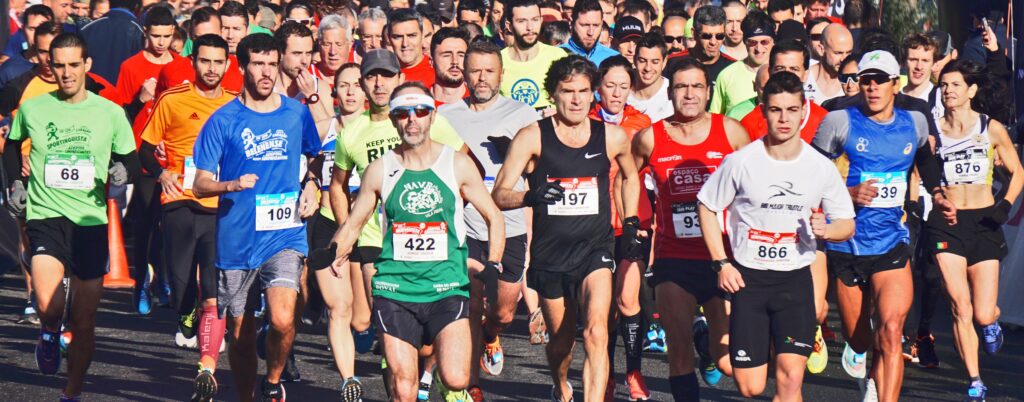
Marathons, half marathons and fun runs are all happening again! More people than ever have taken up running during the last 2 years, mainly because during COVID restrictions it was one of the few forms of exercise still available to us. So if you’re new to running, or even if you’re a seasoned runner, now is a good time to review the best marathon recovery tips.
What Damage Is Done To Your Body During A Marathon?
Before we look at how to best recover from a marathon, lets review what happens to our body during the run.
1. Musculo-Skeletal damage: Your muscles + tendons have been pushed to their limits and need extensive recovery before returning to full training.
2. Cellular damage: post-marathon there is marked increase in the presence and production of creatinine kinase (a marker that indicates damage to skeletal and myocardial tissue) and increased myoglobin levels in the blood stream.
3. Immune system: A suppressed immune system is one of the major causes of overtraining and burnout. Rushing or skipping a recovery period will impact your training down the road, which could significantly derail your long-term goals.
Immediately Post-Race Recovery
1. On the day, you can expect to burn around 2000-3000 calories and lose about 800ml of fluid per hour while running a marathon.
2. During the first hour after the race your body’s immune system is at its lowest so its important to get out of your wet gear, get warm and start to refuel.
3. Stay mobile and avoid sitting down for extended periods
4. Once you’ve finished, start refuelling and rehydrating ASAP. hydrolites, powerades, bananas, protein drinks, nuts, yoghurt, smoothies are all great choices and easy to stomach.
5. Rehydrate gradually, think 500ml per hour post-race
Recommendations For The Week After The Race
1. On average, most people should take a week off serious training after a marathon. This will vary and is a personal thing.
2. This week could still include a few light jogs and plenty of cross training such as cycling, swimming, elliptical, strength etc…
3. After a week off, training should then be lighter than usual, with gradual progressions in mileage and return to normal training in the two-four weeks post-race.
4. After a marathon, it only takes three to four weeks to return to hard training and near peak racing
5. Recent studies show that there is little reduction in VO2max (1-3%) in the first 6-7 days following inactivity in well-trained runners. Furthermore, even after two weeks of not running, studies show that VO2 max decreases by only six percent.
6. Your long-term progression will actually benefit as you allow your body to recover and get fully rested for your next training segment.
Conservative Marathon Recovery Plan
IMPORTANT: Make sure you get 8-10 hours sleep each night on the week post marathon.
Day 1: 20-40 mins walk + active mobility and swim in the pool (leg swings, high knees, squats etc)+ foam roll.
Day 2: Light session in the pool or on a spin bike + 30 mins walk/Jog.
Day 3: 20-30 minute Jog to feel + strength session and foam roller & stretching.
Day 4: Pool session and/or elliptical session + walk
Day 5: 30-40 minute jog + Strides
More Information On Recovery After A Marathon
If you would like more information on how to best recover from a half or full marathon feel free to contact us for free advice from our running coaches or strength & conditioning coach. Our running coaching team works with runners of all abilities from recreational to elite, and we are happy to take calls or emails from runners to help them run at their best, avoid injury and boost their performance.

